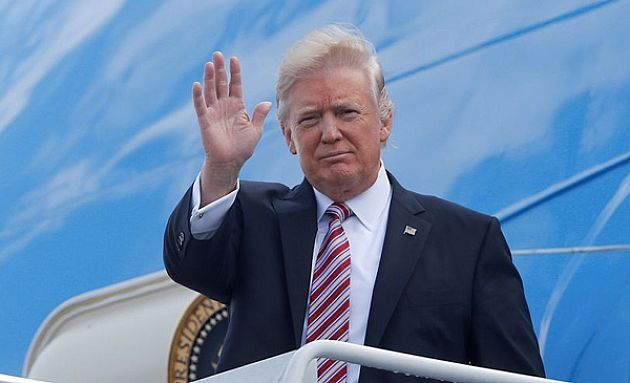Iran Should Avoid Turning into Trump’s Bargaining Chip

With ascension of Donald Trump to presidency in the United States, it appears that in Iran’s diplomatic apparatus, a two-track policy should be defined and implemented immediately:
The first track is balancing our relations with Russia. Russia has long served as a key diplomatic resource for Iran, and will continue to play a key role in Syria until the crisis in this Arab country reaches a point of relative stability. However, Moscow’s goals in Syria do not overlap with those of Iran. In fact, Russia’s global and regional goals are hardly aligned with Iran’s foreign policy priorities.
For Russia, the key foreign policy objective is to overcome the crisis in its relations with the United States. With Trump’s presidency and his appointment of Rex W. Tillerson, who holds a well-documented record of partnership with the Russians, as Secretary of State, Moscow is preparing to return relations with Washington to a more reasonable state and create a platform for joint management of global affairs. As long as Russia has hopes to achieve this goal, all other objectives will hold a lower priority. Within this context, more than being an asset, Iran functions as a tool, with relative efficiency, for Russians, in order to achieve their foreign policy goals.
In the meantime, Moscow is eyeing relations with Turkey, willing to uncouple Ankara from the West/NATO camp and drag it closer to itself. Between Iran and Turkey, Russians naturally prefer the latter. The war between Bashar Assad and the opposition, and Iran’s inability to effectively end the Syrian crisis, was a heavenly gift for Russians. If Russia can play a similar role in the Iraqi crisis, then it has managed to carve for itself an impressive sphere of influence which brings it the status of a superpower capable of resolving international challenges.
In the Syrian crisis, Iran is a difficult, unconventional partner for Russia. From the Iranian point of view, Russia is also a partner with dissimilar priorities who at any moment may rethink its relations with Iran. Particularly after negotiations between Bashar Assad and opposition groups in Astana, Kazakhstan, and the likeliness of another round of talks, this time UN-mediated and with serious engagement by Washington, balancing relations with Moscow is a necessity for Tehran. If Washington tries to turn the table through its plan for ‘free zones’ inside Syria or decides to reorient the Astana talks, the nature Iran-Russia partnership and a consensus inside Iran on reassessment of circumstances seems necessary.
Managing responses to new US’ administration’s measures in the next six months is the next track. Iran also should keep a close eye on its interactions with the new US’ administration, the dynamics of which will directly influence Tehran-Moscow relations regarding Syria. The recent executive orders issued by the White House prove that at least for the next six to twelve months, Trump’s administration will probably implement unconventional, unilateral and provocative measures. With such unorthodox policies, Trump will not only inflict chaos and confusion upon the American society, but will also push members of the international community into indecision and ineptitude.
Iran and Trump’s America meet at the several junctures across the Middle East, the most important of which are: the nuclear deal, or JCPOA, which has the potential to be tied to Iran’s missile defense program and fall into unpredictable course. The situation in Yemen, where Iran’s and the United States’ goals run into conflict. In Syria, Iran again has to meet the Americans (however, the situation is in a state of relative stability, although it has the potential to turn chaotic.) And finally there is the case of Israel, where Tehran and Washington follow diametrically opposed policies.
At such circumstances, Iran should follow two clear lines: one) to block any efforts inside the United States that try to shift the focus from domestic issues towards Iran, Americans’ foreign “enemy”. Let’s not forget that Iran has the potential to bring Democrats and Republicans under one banner, and Trump might turn Iran into a bargaining chip to reach peace with Democrats. In the meantime, Iran should avert any development that could lead to further rapprochement between Washington and Moscow.
* This piece was originally published in IRD Persian. Hossein Malaek is Iran’s former ambassador to China.

